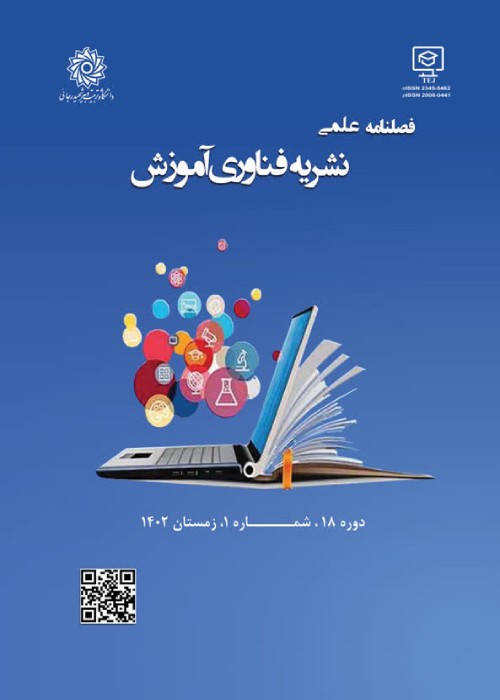Students' lived experience of m-learning in the COVID-19 crisis: A phenomenological study of the challenges
role in COVID-19 crisis is mobile learning. Mobile learning has emerged as a powerful tool in teaching and learning which is considered as one of the beneficial and practical solutions to prevent the closure of the universities. Despite the significance of mobile learning as a tool that has changed the learning strategies by helping the learners to manage their learning with a flexible approach and to provide new horizons in the field of education system, it has its own challenges. Therefore, identifying these challenges can help provide solutions and make the most of technology in the teaching-learning process. Accordingly, the present study has identified the challenges of mobile learning from the perspective of students.
The present study is applied in terms of purpose and phenomenological in terms of qualitative approach. The target population were undergraduate, graduate and doctoral students of Al-Zahra University who had some experiences in using cell phones for e-learning. Accordingly, after utilizing purposive sampling, 32 students were interviewed until the theoretical saturation was reached. To analyze the interviews, the Colaizzi content analysis method was used. To validate the data, peer review method was applied and the reliability was checked through using the two-coder agreement which was equal to 86 between two codes.
The findings showed that out of 315 extracted codes, 68 codes were dedicated to physical challenges, 35 codes to psychological challenges, 31 codes to quality learning challenges, 63 codes to hardware challenges, 52 codes to infrastructure challenges, 39 codes to skill challenges, and 27 codes to supportive challenges. Physical challenges include: headache and dizziness, extreme eye fatigue, exacerbation of neurological diseases and sleep disturbance. Psychological challenges include: stress and anxiety, depression and hopelessness, and lack of concentration and distraction. Hardware challenges include: keyboard problems, battery and charging problems, microphone and audio problems, file download problems, IC problems, and low mobile memory problems. Infrastructure challenges include: poor internet and facilities and equipment. Skills challenges include individual skills. Learning quality challenges include: quality of teaching and research. Supportive challenges included: organizational support, family support, and faculty support.distributional injustices, and that many students in disadvantaged areas have encountered serious challenges in attending virtual classes and conducting educational and research work. Since for most students using a mobile phone is the only option for attending virtual classes, it is recommended to eliminate or reduce physical challenges through scheduling classes at regular intervals, using brightly colored slides, combining text, videos, and using a combination of online and offline techniques. To meet the infrastructure challenges, it is recommended to use free high-speed Internet and also to purchase or rent powerful servers to provide e-learning services. University funding and the purchase of appropriate facilities including computers and mobile phones can help address many of the hardware challenges. To address skill challenges, training skills in working with educational software and academic messengers and holding various introductory and advanced workshops are essential for students. Moreover, to address supportive challenges, it is suggested that the universities seek financial resources from various organizations and charitable support and allocation of appropriate budget; after identifying low-income and underprivileged students, low-interest loans or grants should be allocated to these students for buying computers and mobile phones and by providing underprivileged students with free loans the supportive challenges can be overcome more than before. Also, instructors should understand the students' conditions by identifying the mentioned students in their classes and deal with them with more flexibility and educational aids. The families’ understanding of the educational conditions and providing a convenient environment and facilities to the best of their abilies can minimize psychological challenges to the least. Despite the fact that paying attention to infrastructure and hardware challenges as a prerequisite for the quality of learning is crucial, to meet the challenges of quality learning, solutions such as allocating useful activities to increase students' learning, doing teamwork with a fair division of tasks to avoid the pressure of work on students, appropriate and timely feedback from instructors, and a variety of written and oral assignments are highly recommended. Finally, it can be noted that by overcoming these challenges, the psychological challenges of stress and frustration in students will also be alleviated.
- حق عضویت دریافتی صرف حمایت از نشریات عضو و نگهداری، تکمیل و توسعه مگیران میشود.
- پرداخت حق اشتراک و دانلود مقالات اجازه بازنشر آن در سایر رسانههای چاپی و دیجیتال را به کاربر نمیدهد.



